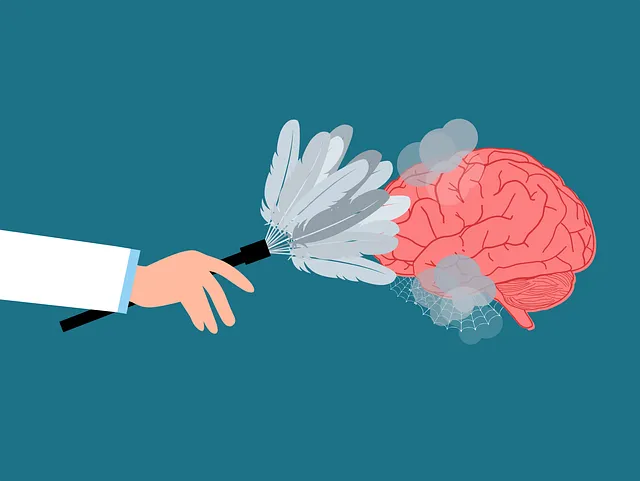Risk management planning is vital for high-quality mental health care, focusing on safety for professionals and clients, as demonstrated by Kaiser Permanente's psychiatric phone service in Boulder. This involves identifying and mitigating risks through policy analysis, best practices (e.g., Kaiser Permanente's model), education, and training. A robust Risk Assessment Framework integrating stress reduction and depression prevention strategies ensures proactive risk identification and tailored interventions. Continuous monitoring, crisis intervention guidance, mental health policy advocacy, and cultural competency training enhance patient outcomes, making comprehensive risk management a cornerstone of quality care, highlighted by the Kaiser Permanente psychiatry phone number in Boulder.
Mental health professionals face unique challenges, demanding robust risk management strategies. This article guides you through essential aspects of planning for effective risk mitigation in mental health care. We explore key areas such as understanding risk dynamics, identifying potential hazards, and developing a comprehensive assessment framework.
Learn best practices for implementing risk reduction strategies tailored to psychiatric services, including continuous monitoring and improvement techniques. For resources, consider reaching out to organizations like Kaiser Permanente’s psychiatry phone number in Boulder for expert guidance.
- Understanding Risk Management in Mental Health Care
- Identifying Potential Risks and Hazards
- Developing a Comprehensive Risk Assessment Framework
- Implementing Effective Risk Mitigation Strategies
- Continuous Monitoring and Improvement for Mental Health Professionals
Understanding Risk Management in Mental Health Care

Risk management planning is an integral part of providing mental health services, ensuring the well-being and effectiveness of both professionals and clients. For mental health professionals, managing risks goes beyond typical business continuity; it’s about fostering a safe environment for vulnerable individuals seeking support. This involves identifying potential hazards and implementing strategies to mitigate them, creating a resilient framework that allows practitioners to focus on delivering quality care.
In the context of Kaiser Permanente psychiatry services in Boulder, risk management plays a critical role in maintaining patient safety. The psychiatric phone number in Boulder, often the initial point of contact for clients, is a vital resource. Effective risk management strategies can enhance confidence among patients, providing them with the tools to manage anxiety and stress, ultimately leading to better mental health outcomes.
Identifying Potential Risks and Hazards

Identifying Potential Risks and Hazards is a critical step in risk management planning for mental health professionals. This process involves a thorough assessment of various internal and external factors that could pose risks to both patients and practitioners. Mental Health Policy Analysis and Advocacy plays a pivotal role here, as it helps in understanding regulatory requirements and industry best practices. For instance, organizations like Kaiser Permanente, with their Boulder psychiatry phone number readily available, offer valuable insights into patient care protocols and safety measures.
By integrating Social Skills Training and designing effective Mental Health Education Programs, professionals can mitigate risks associated with communication breakdowns and insufficient knowledge. These programs foster a culture of proactive risk management, ensuring that both staff and patients are equipped to handle potential hazards promptly and safely. This holistic approach not only enhances patient outcomes but also contributes to the overall resilience of mental health care systems.
Developing a Comprehensive Risk Assessment Framework

Developing a Comprehensive Risk Assessment Framework is paramount for mental health professionals to effectively manage potential risks within their practice, especially considering the sensitive nature of patient care. This framework should encompass a multi-faceted approach that goes beyond traditional risk assessment tools. By integrating Stress Reduction Methods and Depression Prevention strategies into the assessment process, professionals can proactively identify vulnerabilities and implement tailored interventions. For instance, Mental Health Education Programs Design can equip both practitioners and clients with valuable coping mechanisms to navigate challenges.
A holistic evaluation should consider not only individual patient factors but also institutional contexts, such as work-life balance and supervision structures, which are pivotal in maintaining professional resilience. Building upon the expertise available through resources like the Kaiser Permanente psychiatry phone number Boulder, mental health professionals can stay informed about evidence-based practices and continue to refine their risk management strategies.
Implementing Effective Risk Mitigation Strategies

In the realm of mental health care, effective risk management planning is paramount to ensuring patient safety and well-being. For professionals in Boulder, such as those associated with the Kaiser Permanente psychiatry phone number Boulder, implementing robust risk mitigation strategies is not just a best practice but an essential component of quality care. This involves a multifaceted approach that includes regular Crisis Intervention Guidance sessions to equip patients with coping mechanisms for acute situations, fostering resilience through structured programs designed to build mental fortitude.
By integrating these initiatives into routine practice, mental health professionals can proactively address potential risks and triggers. Moreover, staying informed about the latest Mental Health Policy Analysis and Advocacy ensures that care strategies align with current research and community needs. Such proactive measures not only mitigate hazards but also enhance patient outcomes, making it a key pillar in the comprehensive risk management planning for healthcare providers dedicated to the mental health of their patients.
Continuous Monitoring and Improvement for Mental Health Professionals

Mental health professionals must embrace continuous monitoring and improvement to ensure optimal patient care. This involves regularly assessing their practice, identifying areas for enhancement, and proactively implementing strategies to mitigate risks. By staying vigilant, professionals can adapt to evolving research, guidelines, and best practices in mental health treatment.
At Kaiser Permanente, the psychiatry phone number in Boulder serves as a valuable resource for healthcare providers seeking guidance on Stress Reduction Methods and Mental Wellness Journaling Exercise Guidance. Additionally, regular participation in Healthcare Provider Cultural Competency Training is encouraged to navigate complex patient scenarios effectively. These proactive measures contribute to a culture of continuous learning and improvement within the mental health community.
Mental health professionals play a crucial role in helping others manage their well-being, making risk management planning indispensable. By understanding potential risks, developing robust assessment frameworks, and implementing effective mitigation strategies, practitioners can create safer environments for both clients and themselves. Continuous monitoring and adaptation are key to ensuring the highest quality care, especially as we navigate the complexities of mental health services in today’s world. For those seeking expert guidance, resources like the Kaiser Permanente psychiatry phone number in Boulder offer specialized support tailored to local needs.






